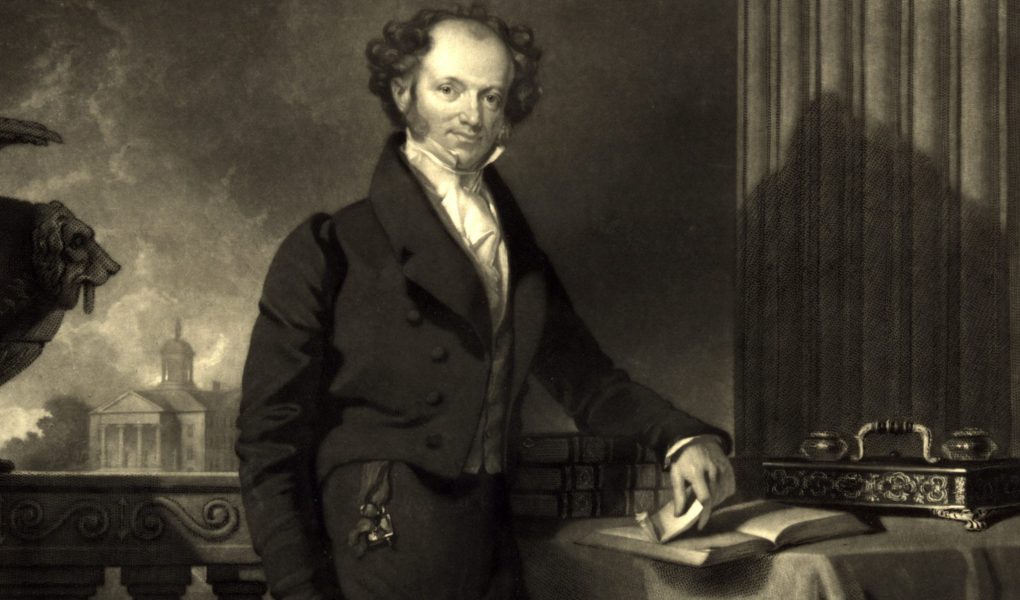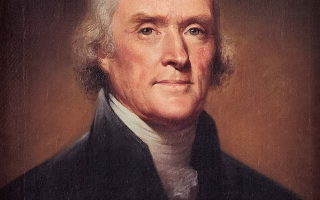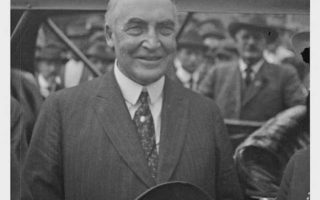kimzolciakwedding.com – Martin Van Buren, the eighth President of the United States, is a figure who remains a fascinating study in early American politics. Born in 1782 in Kinderhook, New York, Van Buren was deeply shaped by his Dutch heritage. His ancestry and early life experiences played a significant role in shaping his character, political values, and eventual rise to the presidency. This article explores the Dutch roots of Martin Van Buren and examines how his background influenced his political career and the legacy he left in American history.
Early Life in Kinderhook: The Influence of Dutch America
A Dutch Heritage in New York
Martin Van Buren was born to Dutch parents, Abraham Van Buren and Maria Hoes, in Kinderhook, a small town located along the Hudson River in New York. This region was part of what was known as “New Netherland,” the Dutch colonial territory that existed in North America during the 17th century. New Netherland was later taken over by the British and renamed New York, but the Dutch cultural imprint remained strong in the region. The Dutch language, traditions, and customs continued to be a significant influence on the communities in the area, including in Kinderhook.
Van Buren’s father, Abraham, was a farmer and tavern keeper who had migrated to Kinderhook from the Netherlands. The Van Buren family was part of a community of Dutch immigrants who had settled along the Hudson River and preserved their cultural identity. The strong Dutch traditions in Van Buren’s family had a lasting impact on his worldview, political values, and understanding of American identity. His upbringing in this community also gave him a unique perspective on the development of the United States as a young nation.
The Role of Dutch Culture and Language
Van Buren’s early life was steeped in Dutch customs. He grew up in a household where the Dutch language was often spoken, and his family practiced many of the traditions common to Dutch settlers. In fact, Martin Van Buren was the first president of the United States who did not speak English as his first language. While Van Buren was fluent in English, he was raised speaking Dutch at home, and it wasn’t until he entered school that he fully mastered English. This bilingual upbringing set him apart from many of his contemporaries and reflected the enduring Dutch influence in his life.
Dutch heritage also played a role in shaping Van Buren’s political philosophy. The Dutch were known for their strong civic institutions and their emphasis on local governance and individual rights. These values were deeply embedded in Van Buren’s political ideology, and he was known for his belief in a strong, active government that protected the rights of the people while maintaining stability. The sense of localism and community that Van Buren learned from his Dutch roots was reflected in his support for a decentralized federal government, as well as his approach to issues such as economic development and state rights.
Van Buren’s Early Political Career: From Dutch-American Roots to National Politics
A Self-Made Politician
Martin Van Buren’s early political career was characterized by his determination to rise through the ranks despite his modest beginnings. After receiving a legal education, Van Buren became a lawyer in Kinderhook and quickly became involved in local politics. His entry into politics was influenced by the Dutch culture of community involvement and public service. He believed that political leadership was a way to improve society and bring about positive change.
In the early 1800s, Van Buren became a member of the Democratic-Republican Party, which was the dominant political party in New York at the time. He rose to prominence as a skilled and persuasive politician, earning a reputation for his ability to build coalitions and navigate the complex political landscape of New York. As a member of the party’s local machine, Van Buren learned the art of political organization, which would serve him well in his later career.
The Bucktails and the Birth of the Democratic Party
In the 1820s, Van Buren became a leader of the so-called “Bucktails,” a faction of New York’s Democratic-Republican Party that sought to challenge the political establishment. The Bucktails, which were made up of young, ambitious politicians, advocated for a more inclusive, democratic political system. They were opposed to the entrenched aristocratic elements of the state’s politics and called for reforms to increase political participation.
Van Buren’s leadership of the Bucktails marked the beginning of his political ascent. He quickly became known for his political savvy, his ability to build alliances, and his commitment to promoting the interests of the common people. His leadership skills and commitment to democratic principles were shaped by the values of equality and community that he had inherited from his Dutch ancestors. By promoting these ideals, Van Buren was able to carve out a space for himself in the national political arena.
Van Buren’s work with the Bucktails laid the foundation for his national political career. His ability to unify factions and appeal to ordinary voters helped him build a base of support that would later propel him to the presidency. His rise to national prominence also coincided with the development of the Jacksonian movement, which he would later help to shape.
Van Buren and the Jacksonian Era: Building the Democratic Party
The Influence of Andrew Jackson
Martin Van Buren’s political career reached new heights when he aligned himself with Andrew Jackson, a move that would help him become the architect of the Democratic Party. Jackson, who was a populist leader and a champion of the common man, found in Van Buren a loyal ally who shared his vision of a strong, democratic government. Van Buren’s political skills and ability to navigate party politics made him an invaluable partner to Jackson as they worked together to build the Democratic Party.
Jackson’s rise to the presidency in 1828 was, in many ways, a reflection of Van Buren’s ability to appeal to the common people and rally support for Jackson’s populist message. Van Buren played a crucial role in organizing Jackson’s campaign and establishing the Jacksonian coalition, which would go on to dominate American politics for much of the 19th century. Jackson and Van Buren’s partnership laid the groundwork for the creation of the modern Democratic Party, a political force that would shape American history for generations.
Van Buren’s Presidency: The First Dutch-American President
In 1836, after Jackson’s two terms in office, Van Buren was elected as the eighth president of the United States. He became the first president of the United States with Dutch ancestry, making his presidency a significant moment in American history. Van Buren’s presidency was marked by his efforts to navigate the country through a challenging economic crisis, which was sparked by the Panic of 1837. While his administration was not able to prevent the economic downturn, Van Buren’s leadership was defined by his commitment to preserving democratic institutions and ensuring that the American people had a voice in their government.
Van Buren’s presidency also reflected the ideals of his Dutch heritage, which emphasized local control, limited government, and individual rights. He was a strong advocate for the independent treasury system, which sought to separate government funds from private banks. This policy reflected his belief in limiting the power of financial institutions and ensuring that the government retained control over its own finances.
The Legacy of Martin Van Buren: A Dutch-American Influence on American Politics
A Shrewd Politician
Martin Van Buren’s Dutch heritage played a key role in shaping his political views and his leadership style. His early experiences in Kinderhook, a Dutch-settled region of New York, taught him the value of community, organization, and the importance of civic participation. As he rose through the political ranks, Van Buren’s Dutch upbringing continued to influence his approach to governance, emphasizing democratic principles, local control, and a deep respect for the people.
Van Buren’s political career was defined by his commitment to building coalitions and organizing political support. His ability to navigate the complex and evolving political landscape of the early 19th century was a testament to his sharp political mind and his understanding of American society. Though his presidency ended in defeat after the economic crisis of 1837, his legacy as a political strategist and the architect of the Democratic Party remains significant.
A Lasting Legacy
Although Martin Van Buren’s time in office was marked by struggles, particularly with the economic turmoil of the late 1830s, his contributions to the political landscape were far-reaching. As the founder of the modern Democratic Party, he laid the groundwork for future presidents, including Franklin Pierce, James Buchanan, and later leaders of the party.
Van Buren’s Dutch roots, though seemingly distant, left a lasting imprint on his career. His deep sense of tradition, belief in self-governance, and respect for democratic values were all influenced by his early upbringing in the Dutch-American community of Kinderhook. As the first U.S. president with Dutch heritage, Van Buren’s story stands as a testament to the influence of immigrant communities in shaping the nation’s political landscape.
Conclusion: A Dutch-American Legacy in U.S. History
The life and legacy of Martin Van Buren are intrinsically linked to his Dutch roots. From his early years in Kinderhook to his rise as the first Dutch-American president, Van Buren’s Dutch heritage shaped his political career and the way he approached the presidency. Though he faced significant challenges during his time in office, his contributions to the formation of the modern Democratic Party and his commitment to democratic ideals have left an enduring mark on American politics.
In examining Van Buren’s Dutch-American background, we gain a deeper understanding of the forces that shaped his leadership and the role he played in the evolution of the United States as a young and dynamic nation. Martin Van Buren’s presidency, while marked by both triumphs and setbacks, is a powerful reminder of the enduring influence of heritage, tradition, and culture on the development of American political history.



